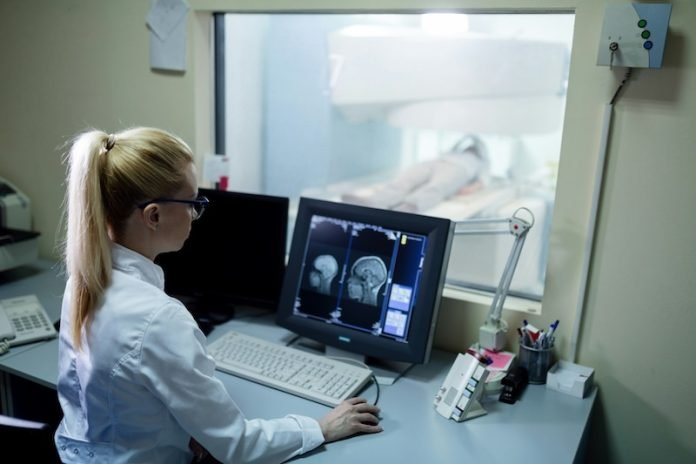
Understanding brain diseases like dementia and Parkinson’s has long been a challenge, but recent advancements in neuroimaging—the technique of visually capturing the brain’s structure and function—are providing new insights.
These advancements are not only helping in diagnosing these conditions more accurately but also in understanding their progression, which can lead to more effective treatments.
Dementia and Parkinson’s disease are both neurodegenerative conditions, which means they involve the gradual loss of nerve cells in the brain. Dementia primarily affects memory and cognitive abilities, while Parkinson’s impacts movement.
Traditional imaging techniques like MRI (Magnetic Resonance Imaging) and CT (Computed Tomography) scans have been used to rule out other causes of symptoms like strokes or tumors.
However, they haven’t always been able to capture the early subtle changes in the brain associated with dementia and Parkinson’s.
Enter advanced neuroimaging technologies. One of the most significant developments in recent years is the use of PET (Positron Emission Tomography) scans that can detect amyloid and tau proteins in the brain, which are hallmarks of Alzheimer’s disease, a common type of dementia.
By identifying the buildup of these proteins, PET scans can help diagnose dementia earlier and more accurately than ever before.
For Parkinson’s disease, advanced neuroimaging techniques focus on detecting changes in the brain regions that control movement. DaTscan, an FDA-approved imaging technique, uses a radioactive drug that binds to dopamine transporters in the brain.
Since Parkinson’s disease is marked by a loss of dopamine-producing cells, DaTscan can highlight these deficiencies, helping to distinguish Parkinson’s from other conditions like essential tremor.
Another exciting development is the use of functional MRI (fMRI), which goes beyond capturing the brain’s structure to showing its active processes. fMRI can track blood flow in the brain, which increases in areas that are more active.
This is particularly useful in understanding how dementia and Parkinson’s affect brain activity over time and in response to treatment.
There’s also growing interest in combining neuroimaging with other technologies. For example, researchers are integrating neuroimaging with genetic testing to identify individuals at high risk of dementia or Parkinson’s before symptoms appear.
This approach can be particularly valuable in clinical trials for new drugs, ensuring that treatments can be evaluated as early as possible.
Moreover, artificial intelligence (AI) is starting to play a role in interpreting complex neuroimaging data. AI algorithms can analyze vast amounts of imaging data quickly and with high precision, potentially identifying patterns that human radiologists might miss.
This can lead to earlier and more personalized treatment plans, which can be crucial in managing neurodegenerative diseases.
Despite these advancements, there are challenges. High costs, limited availability of some advanced imaging techniques, and the need for highly specialized personnel to interpret the results are significant barriers.
Moreover, there’s an ongoing debate about the ethical implications of diagnosing neurodegenerative diseases early, especially when effective cures are not yet available.
In conclusion, the field of neuroimaging is making strides in improving our understanding and management of dementia and Parkinson’s disease.
These technologies are providing unprecedented views into the brain, offering hope for better diagnostic and treatment strategies.
As research progresses, these imaging techniques are expected to become more refined, accessible, and integral in the fight against neurodegenerative diseases.
If you care about Parkinson’s disease, please read studies that Vitamin B may slow down cognitive decline, and Mediterranean diet could help lower risk of Parkinson’s.
For more information about brain health, please see recent studies that blueberry supplements may prevent cognitive decline, and results showing Plant-based diets could protect cognitive health from air pollution.
Copyright © 2024 Knowridge Science Report. All rights reserved.



